Sci-fi suggests a one-device future — and Microsoft (and Apple) should pay attention
Science fiction often becomes science fact.
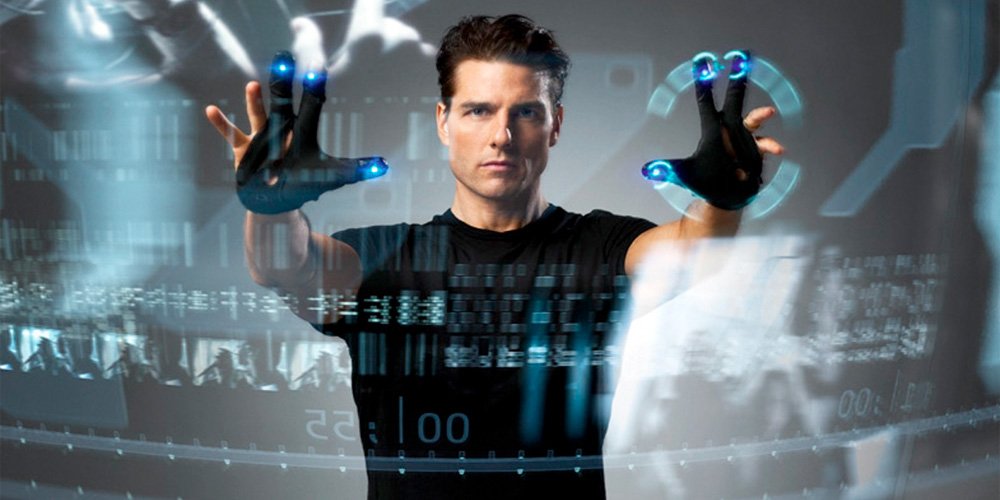
Clamshell-style flip phones, reminiscent of the communicators from the 1960s cult classic Star Trek, were once the dominant mobile device among consumers.
Flip phones untethered us from our homes, allowing us to communicate on-the-go. They also introduced a shift in telephony where phones became associated with "our person" rather than "our place of residence." Bulky enterprise-focused smartphones existed in the shadow of these consumer-focused feature phones.
Early mobile phones had hardware keyboards and tiny screens. Despite rudimentary internet access and basic apps, they, like the phones that preceded them, were used primarily for phone calls.
Apple changed everything in 2007 when it introduced the iPhone, a slate-shaped, touch-centric, keyboard-less mobile device that's not used primarily for phone calls. Given the benefit of hindsight, history may define the advent of the iPhone as the dawn of the ubiquitous "mini-tablet" personal computer.
Science fiction predicted mini tablets
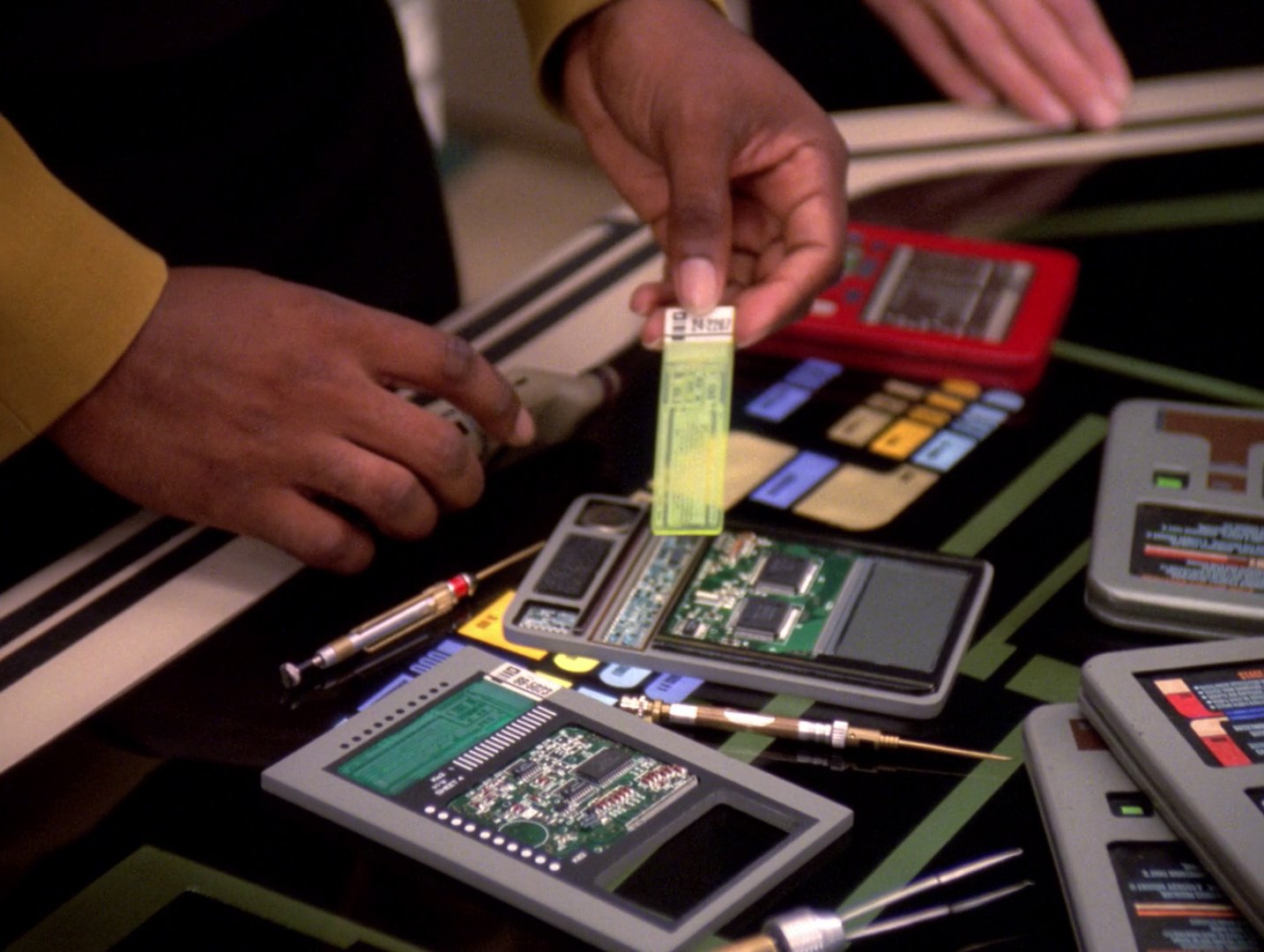
Our proximity to the "feature phone age," and our living through the evolution of the "smartphone age," may be clouding our collective vision of the true nature of our devices. Most people don't realize that what we call smartphones are really tablet computers.
History may define the iPhone's advent as the dawn of ubiquitous mini-tablet computers.
By virtue of design, function and usage patterns, smartphones are very similar to tablets. The future of ubiquitous slate computers is now.
Science fiction predicted always-connected, highly personal mobile computers, often in tablet form, that perform various functions, interact with devices around us and function as communicators. Sound familiar? It should. From safeguarding our personal information to interacting with smart devices, smartphones do all of these things.
Get the Windows Central Newsletter
All the latest news, reviews, and guides for Windows and Xbox diehards.
Sci-fi writers are seers of the future
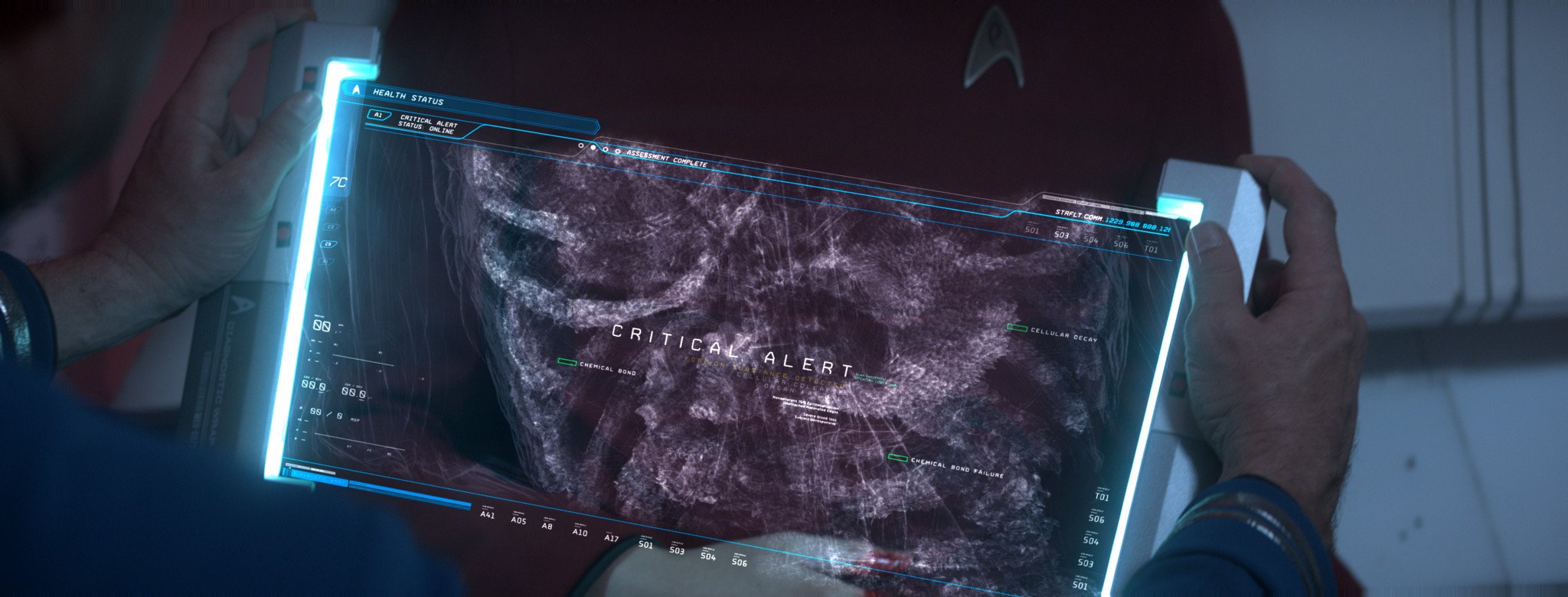
Science fiction writers are often visionaries with an understanding of current technology and a broad perspective of how technology may evolve. They're capable of articulating technology's logical progression, and can also paint pictures of the social, moral and cultural impacts of technological shifts.
We need to see past now to envision the future.
Though some innovations have been influenced by the genre, this isn't a claim that science fiction is the foundation for all future technologies. It is, instead, an attempt to help us look beyond the busyness of our present to see how current technology was predicted in the past. Hopefully, we'll then clearly see how we're now in the age of the tablet computer, not the smartphone.
That perspective will position us to see what current "predictions" are saying about the future beyond mini tablets (smartphones) and how modern technology and tech companies are orchestrating that future.
iPhone brought PC power to pockets
When former Apple CEO Steve Jobs introduced the iPhone, he stressed the ability to touch our data by removing the keyboard and stylus. Therefore, the display of the first, subsequent and iPhone-inspired smartphones that followed dominate these devices. Thus, the "tablet" form factor. A common sci-fi theme.
Furthermore, the variety of apps and the evolving power of these devices has put much, but not all, desktop computing power into our pockets.
The limitations imposed by mobile OSes and user interfaces, limited processor power and a static slate form factor prevent these devices from doing everything a desktop computer can do, however. Thus, we're still, for now, dependent on multiple devices to accomplish different personal computing tasks.
What's next in personal computing?
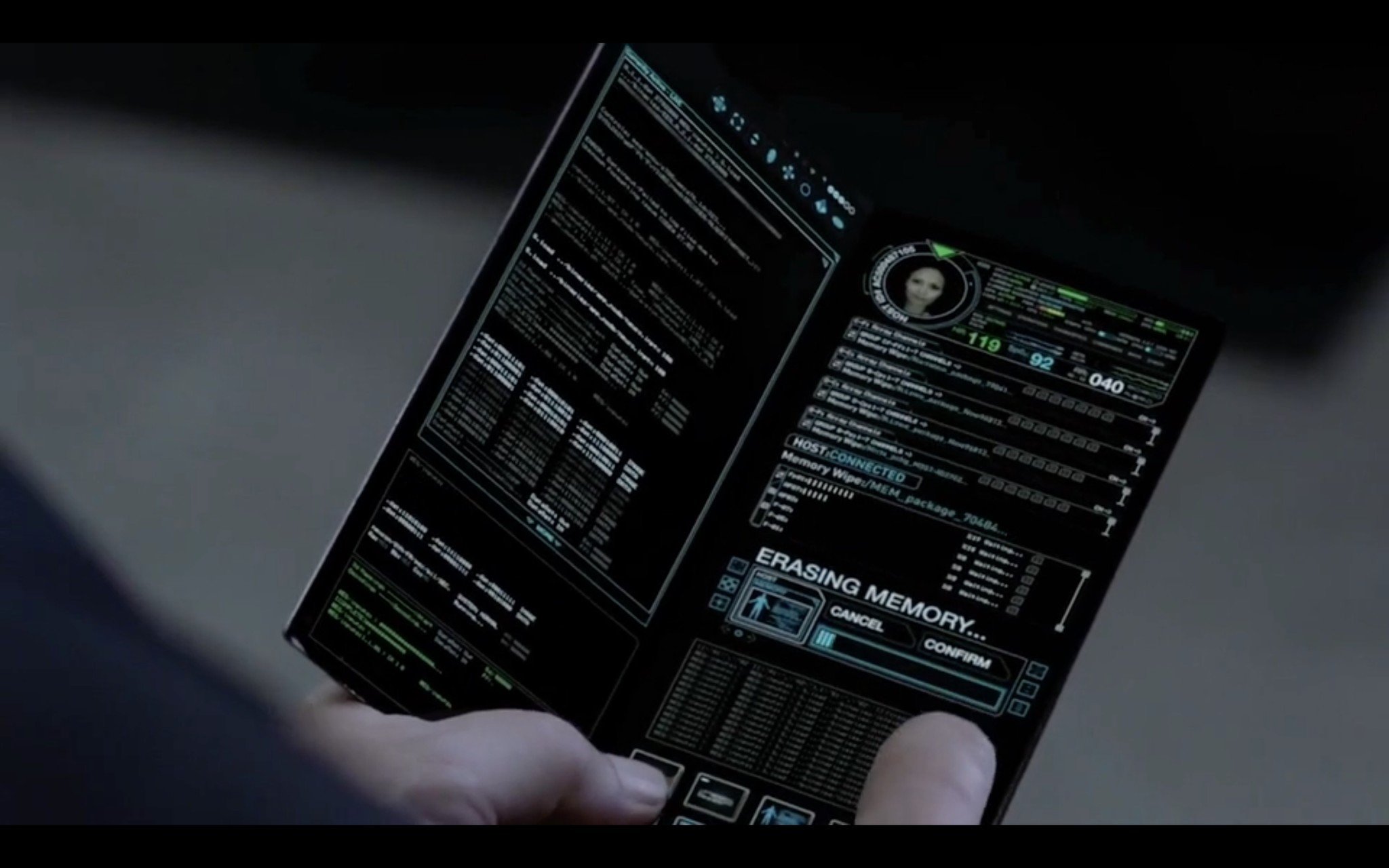
Science fiction predicts that one day, one device will serve all of our personal computing needs. Before you flippantly dismiss this notion, realize that seeing a shift during the shift, is often difficult due to limitations of current technology and infrastructure.
Thirty years ago consumers would have doubted the ubiquitous smartphone.
For instance, 30 years ago average consumers would have had as difficult a time accepting the idea of ubiquitous, always-connected, pocketable tablet computers (smartphones) for everyone, as some of you may struggle with the idea of one device for all scenarios. Yet, here we are.
Broadly available high-speed internet, powerful processors, touchscreen technology, the intelligent cloud and more has made what looked like an unrealistic sci-fi dream three decades ago as common as the automobile. As technology's evolution made mobile devices a natural part of our lives today, it will do the same for the next step in computing in the near future.
Shift to a single computing device is natural evolution
Companies like Google, Samsung, and Microsoft are rumored to be making devices or platforms that can serve all computing scenarios as foretold in science fiction.
Will Samsung beat Microsoft with in ultimate mobile device?
Google's advantages are a broad mobile user base via Android, a growing desktop base via Chrome and strong OEM partnerships. If Android and Chrome merge, Google could showcase mobile and desktop context-sensitivity on a first-party device to inspire partners. Propped on its cloud and AI efforts, first-party services, and massive ecosystem, such a device could define the category.
Samsung's potential foldable device, proven pen technology, Viv-based unbounded AI and Continuum-like tech might also make a device based on merged Android and Chrome OS a success.
Ready or not, the future cometh
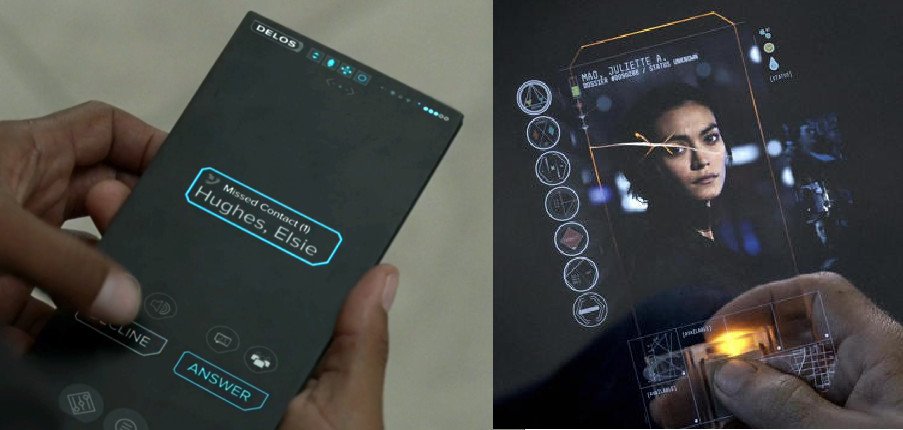
Many readers are justifiably cynical about Microsoft's efforts. But barring its failures and poor commitment to mobile, its vision, like that of other companies, aligns with the industry's direction and science fiction's vision of the future.
The popular sci-fi HBO program "Westworld" showcased a mobile device based on context-sensitive hardware and software. Microsoft's UWP, context conforming CShell, and Core OS are real technologies that can make such a device a reality.
Microsoft's platform approach is better equipped than its rivals, to accommodate context-conforming hardware such as a foldable device with a pen and inking focus. But Microsoft has its problems.
Did Microsoft give us a glimpse of its Surface phone vision?
Mobile and desktop computing converge
The versatile device we see in "Westworld" (above) inspires us with visions of where personal computing is heading.
As the industry segues from a pocketable tablet age to the single device for all scenarios age, Microsoft is in the precarious position of being virtually absent from the current pocketable mobile space.
Ironically, Microsoft's platform approach via Core OS, CShell, Continuum and UWP give it the best platform for a Westworld-style multi-purpose device with potential mixed reality integration for "Minority Report"-like holographic computing. But the company lacks developer support and a consumer presence. If it had been successful in mobile, even cynics would acknowledge that Microsoft would have had an unobstructed bridge to the one device for all scenarios device category.
Microsoft's rivals have developers, apps, and consumers, but a less comprehensive end-to-end platform for a single device for all scenarios.
Just a matter of time
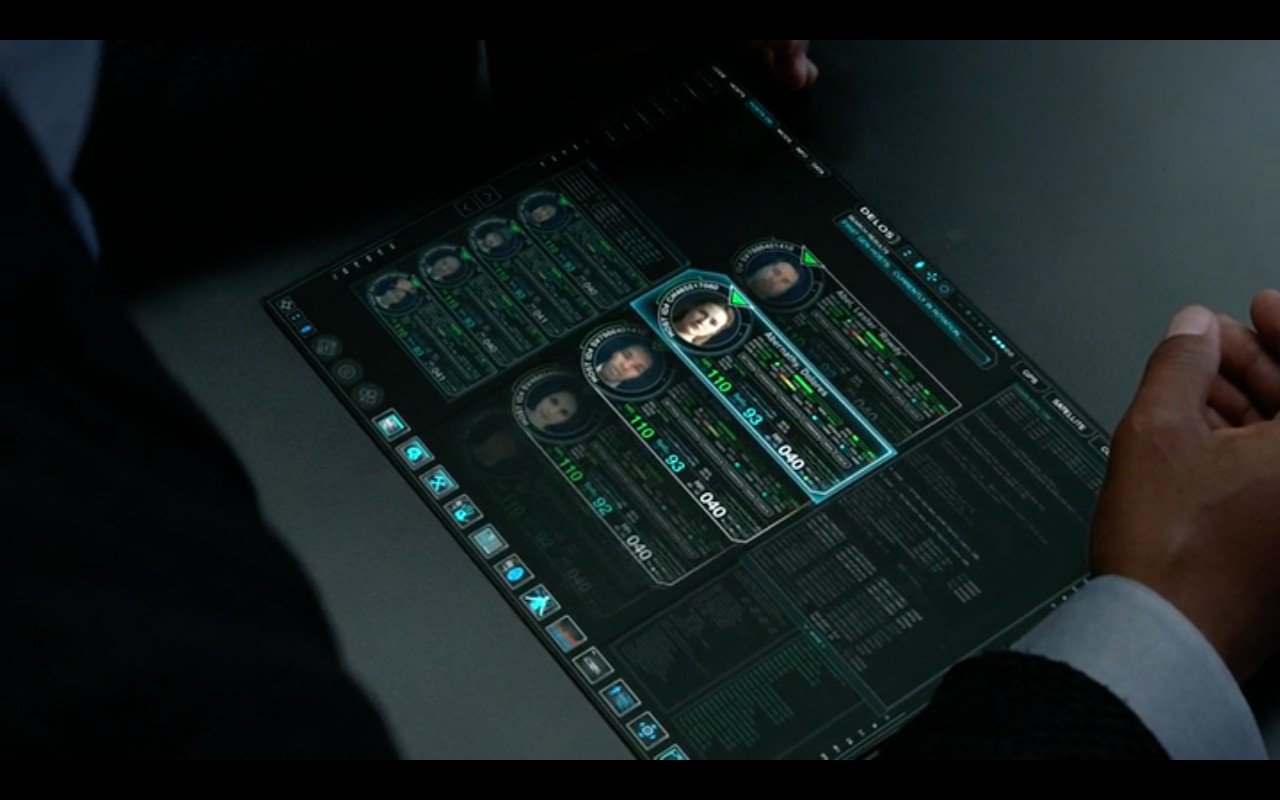
No one company has all of the pieces to this puzzle, but technology has a way of getting to where it's going. I believe we will transition from a post-smartphone mini-tablet age to a single-personal-computing-device-for all-scenarios age.
The early devices in this category, like early mobile phones, will be just the beginning. Given time, the evolution of technology and infrastructure, just as with smartphones, these devices will become more powerful, more prolific and eventually commonplace. And holographic computing will likely be part of the mix.
Jason L Ward is a columnist at Windows Central. He provides unique big picture analysis of the complex world of Microsoft. Jason takes the small clues and gives you an insightful big picture perspective through storytelling that you won't find *anywhere* else. Seriously, this dude thinks outside the box. Follow him on Twitter at @JLTechWord. He's doing the "write" thing!

